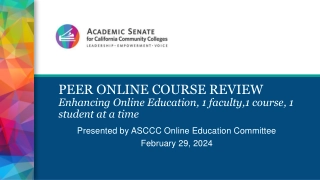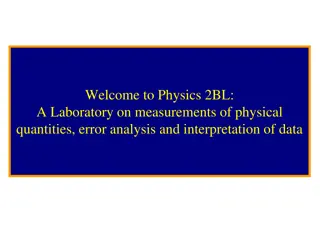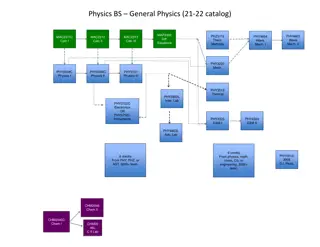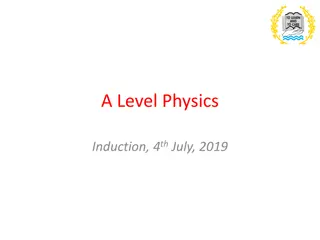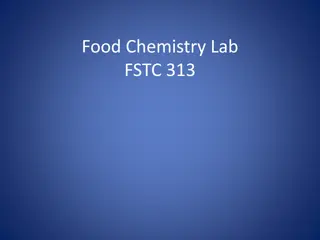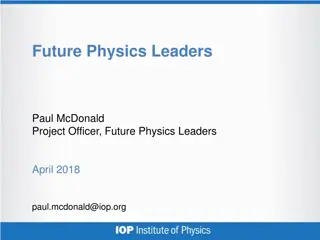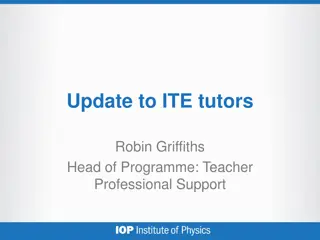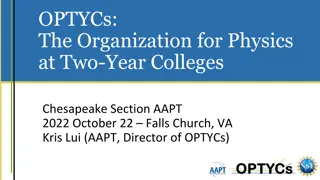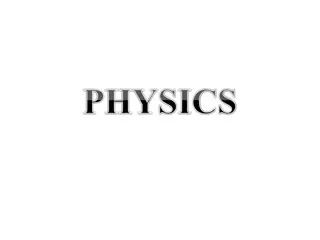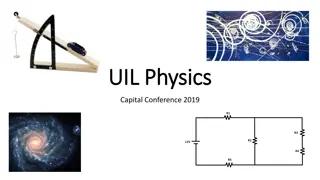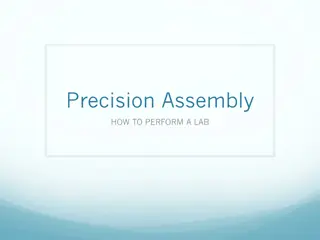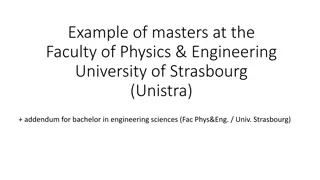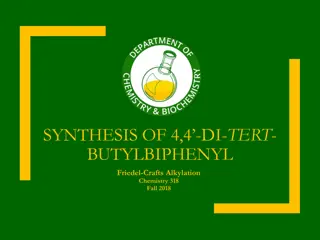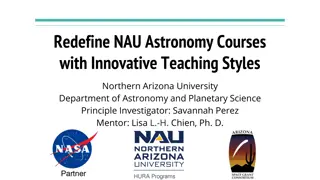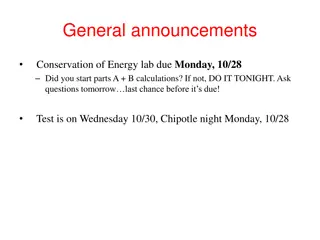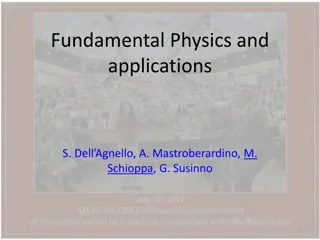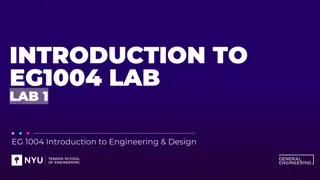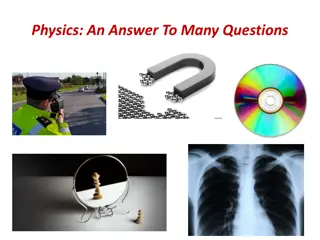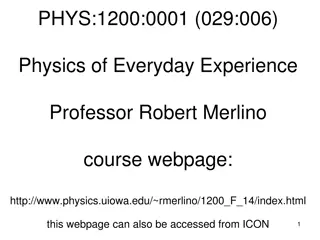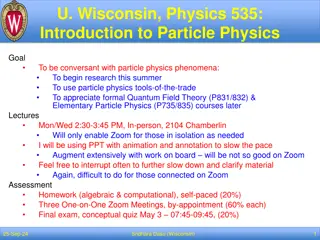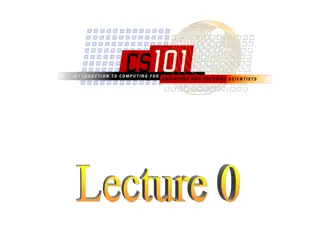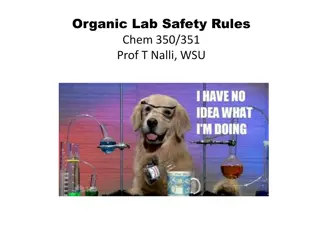Innovating Physics Education: Online Course with Lab Support
Explore the evolution of physics education through an Introductory Physics MOOC with lab components, supported by the Gates Foundation and NSF. The course addresses the Physics Paradox of innovation versus implementation challenges, offering insights on MOOCs, online resources, and rethinking lecture delivery for effective learning in a changing educational landscape.
Download Presentation

Please find below an Image/Link to download the presentation.
The content on the website is provided AS IS for your information and personal use only. It may not be sold, licensed, or shared on other websites without obtaining consent from the author.If you encounter any issues during the download, it is possible that the publisher has removed the file from their server.
You are allowed to download the files provided on this website for personal or commercial use, subject to the condition that they are used lawfully. All files are the property of their respective owners.
The content on the website is provided AS IS for your information and personal use only. It may not be sold, licensed, or shared on other websites without obtaining consent from the author.
E N D
Presentation Transcript
An Introductory Physics MOOC with a Lab Supported by the Gates Foundation & NSF (DUE-0942076)
The Physics Paradox Jack M. Wilson + Leads in innovation (education research) + Lags in (systemic) implementation NRC Report: Adapting to a changing world Over the past several decades, active research by physicists into the teaching of their subject has yielded important insights .. But this new knowledge is slow to find significant adoption, nor is it fully understood by physics faculty.
Education Energy Landscape w/ Erin Rericha Traditional Implementation
MOOCs (Massive Online Open Courses) + Online videos + Virtual discussion forums + Free + Certificate instead of credit
How do you do a lab in an online course?
Video Capture & Analysis of Motion Observations
Course Activities Labs Video lectures Textbook readings Homework Forum
Rethinking Lecture Content & Delivery (More Examples)
Whiteboard-Animated Lectures with Student-created Content + Low cost (Labor, Tools) + Better science than professional animators + Expresses student creativity, enthusiasm
Forum + Third-party provider (Piazza) + MOOC discussion: Wide dynamic range
The Labs (1) Constant Velocity (2) Free Fallin (1D force & motion) (3) Black Holes (>1D force & motion) (4) Rope Physics in Sport (Energy, Oscillations) (5) Capstone: Choose Your Own Adventure
Lab Reports Each student creates a 5-minute video lab report, uploads to YouTube
Peer Evaluation: Rubric + Students grade 5 peer videos + self with 5-item rubric
Training to Evaluate + Beforehand . * View sample videos and apply rubric * Guided video critique + Afterward . * TA-moderated discussion in forums
Peer Evaluation Implementation (Ideal) Calibrated Peer Review (CPR) (Arlene Russell, UCLA) + Student performance in training used to weight evaluations
Peer Evaluation Implementation (Actual) Coursera + No calibration---student score is item median.
MOOC numbers + Large enrollments * 20312 (Summer 2013) * 16480 (Fall 2013) * 7119 (Spring 2014 on going) + 55% outside of U.S. & Canada + 58% Bachelor s degree or beyond
Age Distribution % Of Total At the Start End of Course
Georgia On-line Pre-calculus Charles Kutal (U. Georgia) and collaborators
$7000 Masters Degree (CS) Aug. 17, 2013 NY Times
Acknowledgements Georgia Tech Scott Douglas, Shih-Yin Lin, Emily Alicia-Munoz, Ed Greco Michigan State University Danny Caballero Georgia State John Aiken, Brian Thoms St. Andrew s School John Burk Hamline University Andy Rundquist Highpoint University Aaron Titus NC State Ruth Chabay Bruce Sherwood Supported by the Gates Foundation & NSF DUE-0942076


